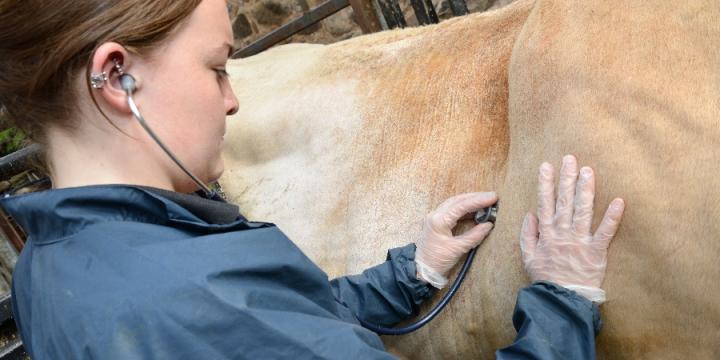Capsule could revolutionise medical and veterinary sector
Inserting new device that releases medicine at specific times under the skin could help fight infectious diseases.

Vaccination is currently one of the most effective and economic ways of fighting infectious diseases. However, providing the necessary booster shots at specific times is a challenge in humans as well as in animals.
Researchers from Heriot-Watt University and The Roslin Institute are developing a capsule that could cut out the need for repeated injections and help fight infectious diseases, such as tuberculosis.
The capsule, which is inserted under the skin and releases medicine at specific times, could mean fewer trips to the vet and GP.
The research uses 3D printing with newly developed biomaterials to make an implantable capsule containing the vaccine booster.
If successful the device can also be used for antibiotics, chemotherapeutics and other drugs, both in animals and humans.
The project is being delivered by Heriot-Watt University and The Roslin Institute thanks to £800k joint funding from the Biotechnology and Biological Sciences Research Council (BBSRC).
We are delighted to have been awarded funding from the BBSRC for this joint project with Heriot-Watt University. This project will investigate the potential for single-shot vaccine delivery in cattle, thereby reducing the requirement for booster immunisations. This could have a significant impact on the control of infectious diseases in livestock.
The capsule contains the vaccine as well as a sugar solution. The sugar will attract water to flow in through the capsule wall, leading to pressure build-up and eventually bursting of the capsule, and delivery of the vaccine booster. By carefully tailoring the material properties and capsule design, we aim to achieve release at the desired time-point, without needing any intervention.
This will omit the need for a second visit to the doctor or a second visit from the vet; it will even allow to vaccinate wildlife without having to recapture the animals to give them their booster shots.
We aim to begin the first step by developing and testing the capsules, and applying them to fight tuberculosis in cattle.
Related links
- Improving vaccine-induced responses in cattle
- Introducing the International Veterinary Vaccinology Network
- Infection and Immunity – Research Division
- Control of Infectious Diseases – Institute Strategic Programme
- Biotechnology and Biological Sciences Research Council


